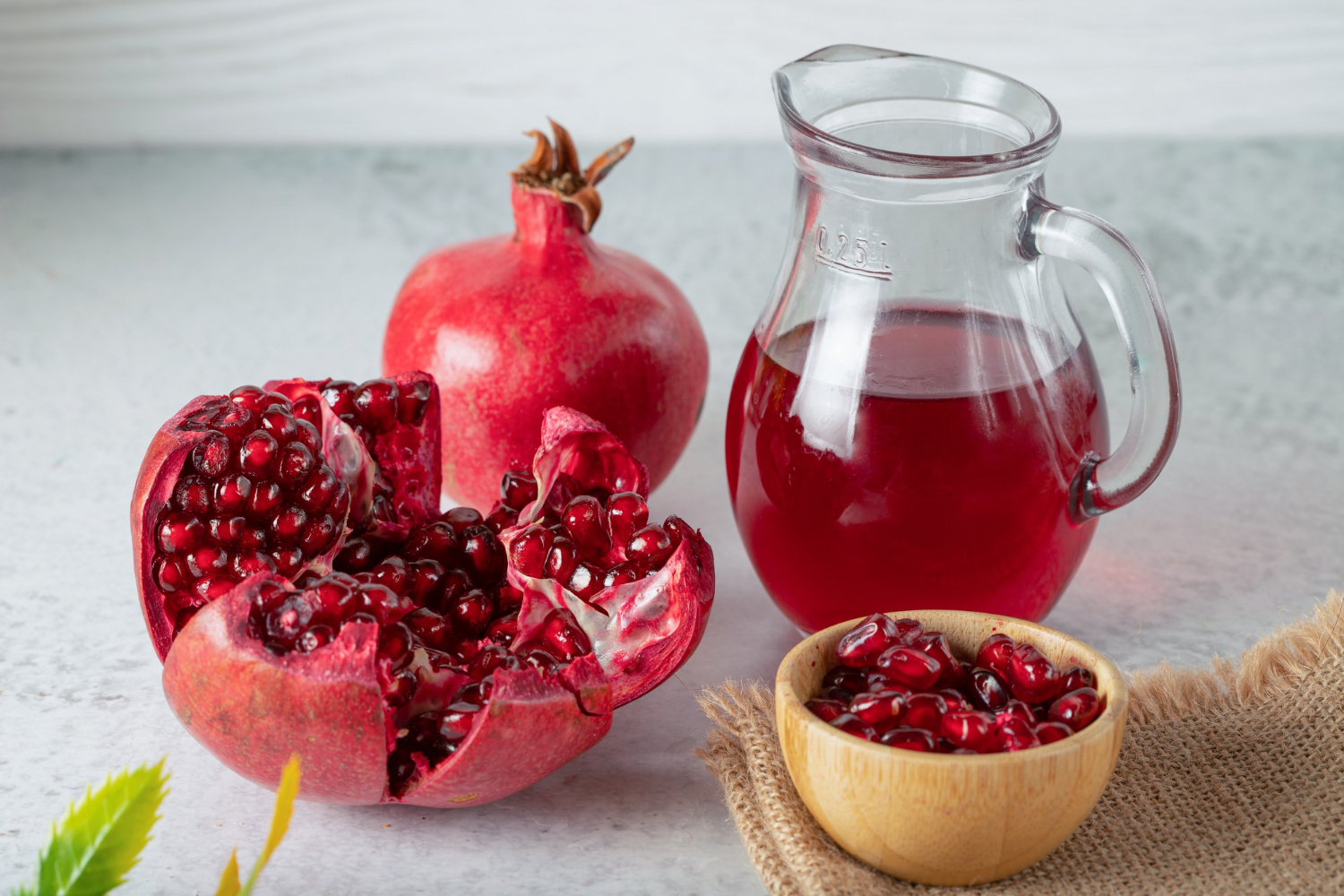Reducing cancer risk and rejuvenating skin: Must-eat fruit for all
 Why pomegranates are good for you (photo: Freepikr)
Why pomegranates are good for you (photo: Freepikr)
The pomegranate seeds, usually expelled after extracting the juice by sucking them, have extraordinary benefits, according to dietitians who assert that not only can they be consumed, but they should be an essential part of the diet, writes Health Shots.
Useful properties of pomegranate seeds
Dietitian Nupuur Patil listed six properties of pomegranate seeds that are not widely known. According to him, pomegranate seeds, along with their seeds, are rich in antioxidants, including punicalagin and anthocyanins, which protect the body's cells from damage.
These substances contribute to the six incredible properties for which pomegranate seeds are renowned. They help combat chronic diseases, including diabetes and heart conditions, thanks to polyphenols that counteract oxidative processes caused by free radicals.
They also improve digestion due to their fiber content and anti-inflammatory action. Fiber helps regulate peristalsis, preventing constipation, as the substances in the seeds have a gentle laxative effect.
Impact on heart and skin
Pomegranate seeds positively affect heart health by lowering cholesterol levels, blood pressure, and improving the function of blood vessels. Punicalagin and anthocyanins specifically reduce oxidative stress and inflammation in the cardiovascular system.
They are beneficial for the skin, reducing wrinkles, eliminating acne, boosting collagen production, and reducing the risk of premature aging.
Moreover, the seeds reduce the risk of developing cancer. Ellagic acid and anthocyanins have anti-cancer properties, inhibiting the growth of cancer cells and promoting apoptosis - a process through which the body naturally eliminates damaged or harmful cells.

Pomegranates (photo: Freepik)
Impact on immunity
Pomegranate seeds contain vitamin C, vitamin K, potassium, and folic acid. Vitamin C supports a robust immune system, while vitamin K is essential for bone health and blood clotting.
Potassium, in turn, helps regulate blood pressure, and folic acid is crucial for DNA synthesis and cell restoration.
Harmful aspects of pomegranate
Pomegranate juice lowers blood pressure, so individuals with low blood pressure should consume it cautiously. Pomegranate juice should be avoided if there are wounds or ulcers in the mouth. Eating pomegranate on an empty stomach or before bedtime is not advisable to prevent indigestion.
Earlier, we reported on those who should avoid consuming pomegranates.
This material is for informational purposes only and should not be used for medical diagnosis or self-treatment. Our goal is to provide readers with accurate information about symptoms, causes, and methods of detecting diseases. RBС-Ukraine is not responsible for any diagnoses that readers may make based on materials from the resource. We do not recommend self-treatment and advise consulting a doctor in case of any health concerns.

